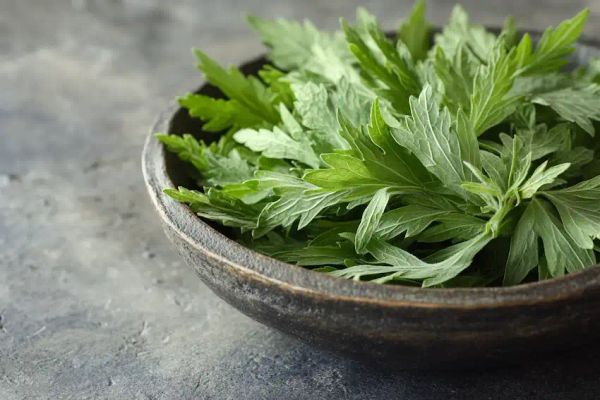
Mugwort (Artemisia vulgaris) may seem like just another weed, but don’t be fooled by its humble appearance. This incredible plant has been used for centuries across different cultures for its powerful medicinal properties. From digestive health to soothing the skin, mugwort offers a wide range of benefits. Let’s explore the wonders of this overlooked herb.
1. Rich History and Traditional Uses
Mugwort has a long-standing reputation in traditional medicine around the world. It was not only cherished for its healing abilities but also associated with herbal magic. People used mugwort to ward off evil spirits and even induce vivid dreams. Medicinally, it has been used to aid digestion, soothe the skin, and much more.
For those interested in preparing herbal remedies, check out our guide on how to prepare fresh and natural herbal goose grass tea.
2. Digestive Health Booster
If you’re looking to improve your digestion, mugwort is your herb of choice. It stimulates the secretion of gastric juices and bile, which aids in digestion and relieves common issues like bloating, indigestion, and constipation.
How to use:
Brew a mugwort tea by steeping dried leaves in boiling water for 10 minutes. Drink this herbal tea before or after meals to promote healthy digestion.
3. Soothing Skin Remedy
Mugwort’s anti-inflammatory properties make it a fantastic ingredient for promoting skin health. It can be used to treat eczema, relieve itching, and reduce inflammation.
How to use:
Create a mugwort poultice by grinding fresh leaves and applying them directly to the affected area. Alternatively, infuse mugwort in oil and use it as a topical treatment for irritated skin.
For more tips on preserving and using herbs, see our guide on how to preserve fresh herbs for winter.
4. Menstrual Cycle Regulation
For women seeking relief from menstrual cramps and irregular cycles, mugwort has been a trusted ally for centuries. Its emmenagogue properties stimulate menstrual flow and ease symptoms of menopause.
How to use:
Women can drink mugwort tea to regulate their cycles and reduce menstrual pain. However, it is essential to consult with a healthcare provider first, as mugwort can be quite potent.
5. Natural Antimicrobial Aid
Research suggests that mugwort has antimicrobial properties, making it effective against certain bacteria and fungi. It can be a valuable component in preventing infections.
How to use:
Use mugwort tinctures or extracts as part of a natural first aid kit to cleanse wounds or treat fungal infections.
6. Anxiety and Stress Relief

Mugwort’s mild sedative properties make it an ideal herb for relieving anxiety and reducing stress. It can help calm your nerves and promote relaxation, leading to a restful night’s sleep.
How to use:
Drink mugwort tea before bedtime to encourage relaxation and improve sleep quality.
Embrace the Power of Mugwort
Mugwort may be an underrated herb, but its versatility makes it an invaluable addition to your wellness routine. From ancient traditions to modern medicine, this herb has stood the test of time. However, it’s important to remember that the information provided in this article is for educational purposes only and not intended as medical advice. Always consult with a healthcare professional before trying any new treatments, especially if you are pregnant, nursing, or have existing health conditions. Use mugwort with caution, as its effectiveness may vary.
So, why not unlock the hidden potential of mugwort and experience the benefits for yourself?





